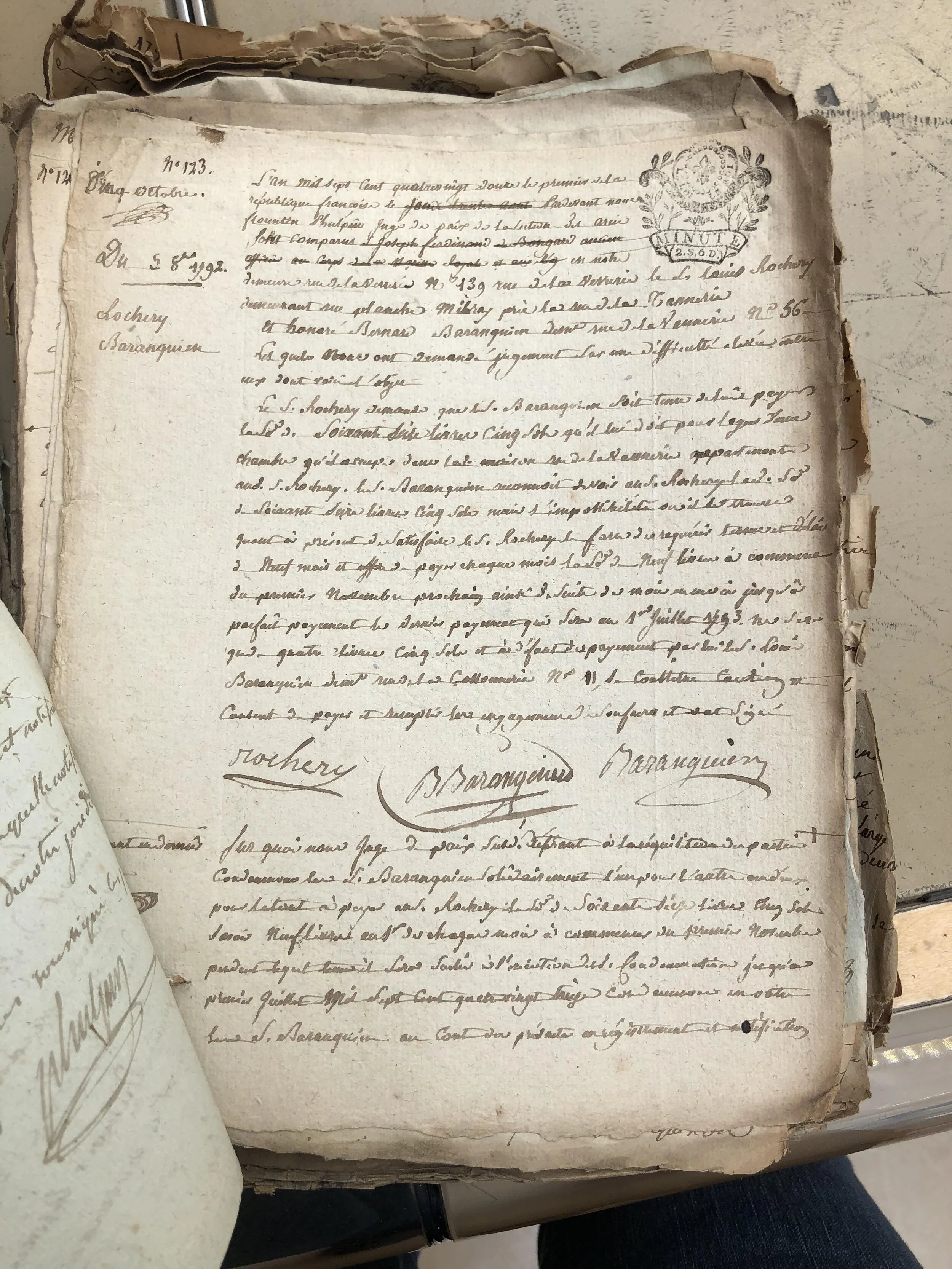A “voluntary judgment” between two citizens in 1792. Through this new procedure at the revolutionary justice of the peace, neighbors cooperatively sought a ruling on a civil dispute from their elected judge. For the first time in modern French history, individuals could judicially resolve their disputes in a nonadversarial fashion and could jointly invite the state to facilitate their compromises.
Democratizing Forgiveness in Revolutionary France
(Voir ci-dessous: Démocratiser le pardon dans la France révolutionnaire)
My current book project, Democratizing Forgiveness in Revolutionary France, analyzes how the French revolutionaries refashioned forgiveness in institutional forms. It argues that, amid conflict, the French Revolution forged modern politics and society by reinventing reconciliation. This project reveals how the revolutionaries enacted a cooperative social contract through new restorative judicial practices, religious beliefs, economic relations, and political imaginings. It explores how citizens repaired broken bonds by arbitrating local disputes, forgiving personal loans, and settling retail debt in court. It also considers how citizens reconceptualized reconciliation through sacramental confession and elected priests. In analyzing these everyday practices, my research reveals how women and men seized the tools of the revolutionary state to forge their own visions of the new body politic and of how citizens should interact within it. Democratizing Forgiveness thus demonstrates how, through quotidian relationships, revolutionary forgiveness became both a brake on conflict and a motor for change. This project has been supported by an ACLS Fellowship and an NEH Fellowship.
Mes travaux actuels portent sur la démocratisation du pardon dans la France révolutionnaire. Ils s’attachent à montrer comment, après avoir dessaisi le roi et l’Église du pouvoir de pardonner, les révolutionnaires ont réinventé le pardon à grande échelle et canalisé ses connotations politiques dans les relations quotidiennes entre les citoyens. Les révolutionnaires ont donné corps aux conceptions d’un contrat social coopératif en développant de nouvelles pratiques judiciaires réparatrices, de nouvelles croyances religieuses, de nouvelles relations économiques et de nouveaux imaginaires politiques. Mes recherches présentent les citoyens à l’œuvre dans la réparation de liens rompus : règlement de conflits de voisinage, négociation de dettes auprès de nouveaux tribunaux et via de nouvelles procédures juridiques. La redéfinition de la réconciliation s’est aussi développée via la confession sacramentelle et de nouvelles réformes religieuses. Modelant les relations quotidiennes, le pardon révolutionnaire s’est révélé à la fois comme un frein à certains conflits interpersonnels, un catalyseur de nouveaux désaccords et le moteur d’un changement de société à grande échelle. Mon futur ouvrage entend montrer que la reconfiguration de la résolution des conflits peut elle-même être révolutionnaire.
